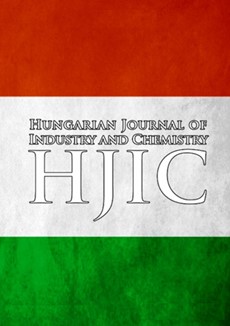Unraveling the Novel Bacterial Assisted Biodegradation Pathway of Morpholine
DOI:
https://doi.org/10.33927/hjic-2022-07Keywords:
morpholine, xenobiotic, recalcitrant, glycolic acid route, ammoniaAbstract
Most xenobiotics are biodegradable, persistent or recalcitrant in nature. Morpholine, a typical xenobiotic, was initially regarded as recalcitrant, however, later proved to be biodegradable by bacterial species like Mycobacterium and Pseudomonas in particular. However, establishing the metabolic pathways involved for the successful biodegradation of morpholine is challenging because of its extreme level of water solubility that affects various analytical procedures. In addition, to date, no suitable analytical methods have been reported to directly estimate the activity of morpholine and its degradable products or intermediates. Nevertheless, methods, especially optical density, gas chromatography and mass spectrophotometric analysis, could indirectly estimate the degradation product(s) of morpholine formed as a result of its biotransformation. In this present study, the degradation pathway of morpholine was scertained by selected bacterial isolates by measuring their capacity to degrade morpholine. Based on this analysis of culture filtrates, it was determined that the novel isolate is the genus Halobacillus blutaparonensis which utilizes the diglycolic acid route from the metabolic degradation pathway of morpholine to induce one of two branches of the morpholine biodegradation pathway in the presence of morpholine while the other branch is inhibited. Whatever the branches with regard to the degradation pathway of morpholine exhibited by bacteria are, ammonia is the final end product of degradation which might be biochemically utilized by the isolate.




